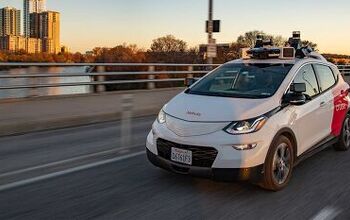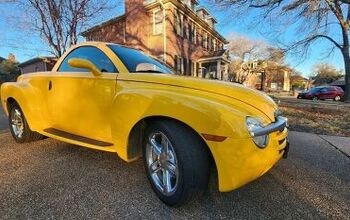Why NYT Scribe Tom Friedman is Wrong. Again.
Once again, New York Times columnist Tom Friedman has addressed automotive issues. This time, Friedman weighs-in on the ultra-cheap car being posited for the rapidly-growing Indian market. The gist of Friedman’s proposal: tax the stuffing out of the cheap car and put the money into mass-transit. Like most of Friedman’s auto-related rants, this one combines a handful of valid points, a couple of keen observations, a soupcon of knee-jerk utopianism and enough muddled thinking to make it impossible to support his views.
Like most Western intellectuals familiar with (if not actual users of) their home town public transportation systems, Friedman believes government has a right (if not an obligation) to manipulate urban transportation patterns for its citizen’s well-being. If these pro-mass transit thinkers harbored any doubts about the costs or consequences of this intercession, the prospect of automotive pollution and global warming removed them.
And so the New York Times scribe surveys India’s chaotic conurbations, imagines adding millions of private vehicles, and concludes that the Indian government should heavily tax cars to prevent this eventuality.
Never mind that taxing cars beyond the reach of the middle class is a fundamentally elitist proposition, reserving personal transportation for the small percentage of India’s “haves.” Preventing India’s urban areas from generating even MORE pollution serves the greater good. Besides, Friedman says that the money will (should?) get plowed back into mass transit, which is better for the middle class– and everyone else– than owning a car.
Have a look at the picture. Why would any member of India’s middle class want to spend their hard-earned money on a car for commuting? Immobility would limit their ability to earn enough money to pay for the car. So unless a car aids an Indian consumer’s ability to commute, they won’t buy it for that purpose. In other words, congestion creates a natural limit to car ownership. An extra tax is both discriminatory and unnecessary.
Of course, Friedman is presuming that cars = commuting. Given gridlock, perhaps Indians will buy the new, cheaper car for something other than slogging back and forth to employment: commerce, shopping, trips to distant relatives, etc. For these tasks, mass transit is not the ideal solution. If mass transit WAS the answer, people wouldn’t buy a car. This is especially true at the economic margins, where India’s new, inexpensive car will find favor. Would Friedman discourage these sorts of trips for the greater good? Apparently so.
Whether or not you agree with that consequence of Friedman’s call for draconian private automobile taxation, Friedman’s argument fails to consider a key reason why a middle class Indian WOULD opt for a cheap car over mass transit (gridlock be damned).
To assure sufficient rider volumes and maintain political equilibrium, India’s mass transit network is widely affordable. Over six million commuters use the Mumbai Suburban Railway every day; it has the highest passenger density in the world. In a country with an entire class of people called “untouchables,” middle class Indians who have the means to buy the new inexpensive car do not now, nor will they ever, prefer to share mass-transit with tens of thousands of less fortunate souls.
It's not PC to say it, but Friedman’s plan for more Indian mass transit wouldn't keep India’s middle class off the roads. Increasing mass transit will simply increase the number of less wealthy people flooding into urban centers– exponentially. The consequences of this increase are unknown, but given that there are many types of pollution (including human waste), it’s entirely possible that a larger mass transportation system may not be in the environment’s best interest.
It may pain a writer living in a "first world" country to admit it, but environmental concerns must be always be balanced against economic prosperity– if only because most citizens value the latter more than the former (sorry, that’s the way it is). In that sense it’s worth asking if traffic congestion actually HELPS India. The more urban congestion, the more business and people move away to outlying areas, where prices are cheaper and transportation more efficient. If it works for Atlanta, Houston, LA, London, Paris and Moscow, why wouldn’t– doesn’t it work in India?
Anyway, the whole frame of reference for this debate is seriously off-kilter.
Intellectuals who learned their history in the big city tend to forget that inexpensive personal transportation has the greatest impact outside urban areas. Out past city limits, cars open up an entire world of possibilities and, thus, raise the quality of life. For America’s vast rural population, Henry Ford’s Model T created new economic markets for labor and goods, fostered social mobility, improved public health and increased genetic diversity. By shrinking distances, a cheap Indian car would liberate time that the rural poor could use for more efficient economic endeavor and/or education.
Any government looking to improve the well-being of its citizenry should think long and hard about raising the “floor” to automobile ownership. As should Tom Friedman.
[You can read Mr. Friedman's column here.]
More by Robert Farago
Latest Car Reviews
Read moreLatest Product Reviews
Read moreRecent Comments
- Analoggrotto More useless articles.
- Spamvw Did clears to my '02 Jetta front markers in '02. Had to change the lamps to Amber. Looked a lot better on the grey wagon.I'm guessing smoked is illegal as it won't reflect anymore. But don't say anything about my E-codes, and I won't say anything about your smoked markers.
- Theflyersfan OK, I'm going to stretch the words "positive change" to the breaking point here, but there might be some positive change going on with the beaver grille here. This picture was at Car and Driver. You'll notice that the grille now dives into a larger lower air intake instead of really standing out in a sea of plastic. In darker colors like this blue, it somewhat conceals the absolute obscene amount of real estate this unneeded monstrosity of a failed styling attempt takes up. The Euro front plate might be hiding some sins as well. You be the judge.
- Theflyersfan I know given the body style they'll sell dozens, but for those of us who grew up wanting a nice Prelude Si with 4WS but our student budgets said no way, it'd be interesting to see if Honda can persuade GenX-ers to open their wallets for one. Civic Type-R powertrain in a coupe body style? Mild hybrid if they have to? The holy grail will still be if Honda gives the ultimate middle finger towards all things EV and hybrid, hides a few engineers in the basement away from spy cameras and leaks, comes up with a limited run of 9,000 rpm engines and gives us the last gasp of the S2000 once again. A send off to remind us of when once they screamed before everything sounds like a whirring appliance.
- Jeff Nice concept car. One can only dream.


































Comments
Join the conversation
Carlos, Nice try. Like I said, let's agree to disagree. PCH You may be right about taxing the purchase price in India. Since they have so few cars now, it could be effective. As you say, apples and oranges. Still, there could easily end up being a gray market of imported used cars. As for the cars wearing out, I have a one word answer - Cuba. I can't see any reason for having a policy against car ownership, only use. Any attempt to limit ownership is either misguided, or 1984 ish. I wouldn't necessarily oppose the goal, if it were to prevent gridlock. However, India is a really big place, and it isn't all overly stuffed metropolitan area. One really good way to prevent car buying and use is to simply have nowhere for them to drive. If a street is full of pedestrians, close it to cars, and no one on that street will likely buy one. Taxing something people don't want won't get you much revenue. OTOH, if there really is a need for cars, why are you trying to prevent their use? Seems to me that the goal of the state should be transparent and benevolent. If the people don't want pollution, then mandate no pollution, not no cars. Leave it to the market to solve the problems, leave it to the state to set the standards. Just because a bunch of pencil heads believe mass transit is the answer, doesn't mean it is. Usually, they aren't even asking the right questions. What they want is the most controllable solution, not the best solution. If the mass transit system can move x people with cost y, then government should not object to a private solution that does the same. Even if you want to include non economic costs (pollution). Same logic applies.